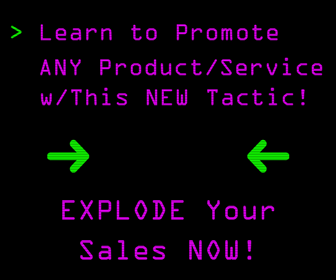These days, link building is all about outreach.
Over time, we've seen an ongoing trend: there have been fewer and fewer ways to “DIY” your own backlinks.
The best way to get them is to earn them.
Earned editorial links are what you should be aiming for.
That's not to say you shouldn't actively reach out to bloggers, journalists, and the like. But ideally, your content is so high-value that people independently choose to link to it.
Unless you're in some odd little niche that's both little known and very new, a lot of the basics have already been covered.
Is your “Ultimate Guide to Influencer Marketing” really going to be competitive with the likes of Neil Patel and other big names in the marketing industry?
Probably not.
If everything is “the ultimate,” nothing is.
So initially, you'll find yourself kind of rehashing what's already been said.
You might be using a “skyscraper” approach to do this, but even then, it can be challenging to find places that really add value.
That's one strategy you can use.
But what if you could create a piece of content that contains information that no one else has access to?
Something only you could have.
In a recent post, the Content Marketing Institute explains how to create content that's genuinely unique and compelling.
Why ‘earned’ links
If I haven’t made it clear, these strategies are all about earning links rather than building them.
By committing to earning instead of building, you no longer have to worry about Google’s constant algorithm updates affecting your ranking. Because, at the end of the day, attempting to outsmart Google’s engineers is a game you will lose.
Commit to earning links rather than building them. And do it using these four strategies.
1. Create the best content available on your topic
While this strategy is easier said than done, it’s by far the best way to earn a large number of links.
To do it, look at the content already ranking high for the topic you’re targeting.
For example, let’s say you want to create content on the topic of defining conversion copywriting. The first thing you would do is perform a Google search for “what is conversion copywriting?”
[image source: Content Marketing Institute]
As you browse the results, you see that the opportunity is good to create more valuable content – a highly linkable piece of content – on the topic.
And since most of the results don’t directly answer the question, you may even be able to create content that appears in Google’s answer box for this phrase.
Here’s how the process looks after conducting a Google search on your topic:
- Take notes on the content ranking highest – Open and skim each result on the first page of the rankings to detail what each piece of content does and doesn’t do well.
- Identify where and how your brand can do better content – With these notes, identify opportunities for besting them. Ask yourself questions like, “Can my content be more actionable?” or “Could I include more engaging visuals?” or “Could I include original research or a case study?”
- Create an outline – Now that you know what you’re up against, create a thorough outline that lays out the research, visuals, actionable advice, etc., that you’ll use.
- Develop content that’s better – With the outline, you can now create a post that provides a better result for searchers of your chosen topic.
And, since you’re attempting to cover the topic as thoroughly as possible, know that you likely need to create long-form content.
Not only does it help ensure that your post is highly informative, but it also puts you in a better position to rank at the top of search engine results.
Don’t forget to develop content in long form for a greater chance of earning links, advises @JuliaEMcCoy. #SEOCLICK TO TWEET
2. Perform exclusive interviews with industry experts and/or influencers
This influencer or expert content strategy is becoming more common. My team used it for an episode of our Write Podcast by interviewing conversion copywriting expert Joanna Wiebe.
One of the quotes from the transcribed interview was featured as a backlink in Crazy Egg’s Guide to Conversion Copywriting.
The best part?
The phrase for the backlink was “describe conversion copywriting.”
As a result, when searchers use the phrase “describe conversion copywriting,” our podcast interview ranks third and the content that incorporates its backlink ranks first.
[image source: Content Marketing Institute]
In addition to that high-authority link, the interview generated 12 other links. That’s the power of an industry expert interview.
You can find more great ideas for unique content over at the Content Marketing Institute.
CHALLENGE Yourself to Profit!
Free Download: Build Your Profit-Generating Online Business With This Free Blueprint
Sign Up, follow the easy steps and You'll get the tactics, strategies & techniques needed to create your online profit stream. It's free!






